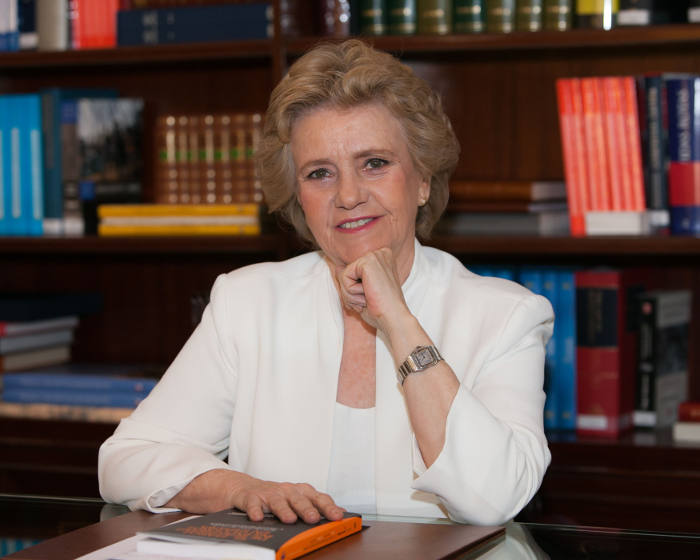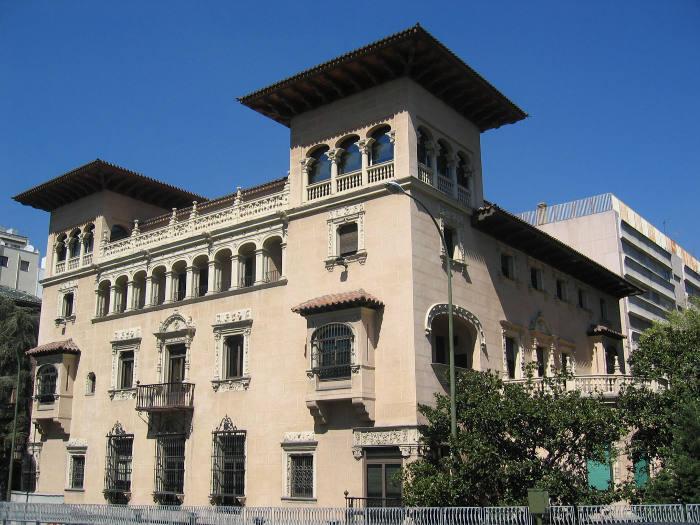-
22 July 2016
Category : Interview
Fifty-thousand people asked the Ombudsman to take action in 2015
El Defensor del Pueblo es el organismo encargado de defender los derechos fundamentales y las libertades públicas de los ciudadanos. Se trata de una institución independiente que, como tal, desempeña sus funciones con independencia e imparcialidad, con autonomía y según su criterio. Además, el Defensor del Pueblo ha colaborado con la FIIAPP en diferentes proyectos de cooperación internacional. El último sobre la puesta en marcha de la oficina del Defensor del Pueblo en Turquía.

Soledad Becerril, the Ombudsman since 2012, was the first woman to hold the office in Spain. In this interview, she tells us what the work of the Ombudsman’s Office consists of:
Do all citizens have access to the Ombudsman’s Office?
All citizens have access to the Ombudsman’s Office, on a non-discriminatory basis and, we hope, without any type of difficulty. Because, for submitting their complaints, they have toll-free numbers they can call, they can write to us directly by sending a letter, come into the Ombudsman’s Office physically to explain their problem and, of course they can also do so via Internet, using e-mail or through our website.
What types of complaints does the Ombudsman handle?
Complaints about public administrations. The Ombudsman does not handle complaints between private citizens or private institutions or businesses.
We also act through the corresponding ministry in the case of large companies that provide public services, such as telephony or transport, or, for example, matters related to banks, through the Bank of Spain. But we handle all types of situations and problems. In relation to disabled people, problems with local taxes, matters involving the national tax agency, waiting lists in hospitals, etc. In short, all types of problems and circumstances.
Are all of the complaints in Spain brought before the Ombudsman handled in Madrid, or are there also branch offices in the self-governing communities?
We cover the entire Spanish territory. There are also Ombudsman’s Offices in ten self-governing communities which have the capacity to act within the jurisdiction of the particular community.
How many complaints are received each year by the Ombudsman’s Office?
Around 20,000. And, a great number of them are submitted by individuals. Although groups, associations and institutions can also contact us.
In 2015, in the annual report we present every year to parliament, we realised that 50,000 people had submitted documents requesting action from the Ombudsman.
Are there priority issues for the Ombudsman’s Office?
We don’t have priority issues. What we do is to try to identify situations that are more urgent than others. For example, if there is a person in an irregular administrative situation who is about to be deported and we are aware that there are also circumstances of vulnerability involved, very unique or very special ones, we act rapidly before the person is deported.
If we are aware that a minor’s situation is very dramatic or very difficult, these situations are handled before other ones, but all issues are addressed.
What are the main challenges facing the Ombudsman’s Office?
The greatest challenge is to reach the greatest possible number of people and to ensure that the greatest number of people with a problem know how to contact the Ombudsman and can do so. That’s why the website is so important. To make us visible and make the population understand what we do, to be appreciated. This is fundamental, having the trust of citizens.

Ombudsman´s office in Madrid What are the greatest difficulties?
The same difficulties that all administrations, local governments, regional community governments or the national government have; budgetary problems related to getting more money allocated to assistance, social or health services.
What is the role of the Ombudsman in other countries?
Most countries in the European Union have ombudsman’s offices, as well as Ibero-American and some Mediterranean countries. We have helped them and assisted in training the teams working in these ombudsman’s offices.
Most recently we were in Turkey for two years (through a project managed by FIIAPP and financed by the European Commission). We showed them how we work in Spain and collaborated in training the staff there. In addition, we have an ongoing relationship of collaboration with the Ibero-American ombudsman’s offices, which follow the Spanish model.
What has the Spanish Ombudsman’s Office contributed in Turkey?
We provided part of the necessary training to its teams: how to handle matters, which areas they can take action in, how action can be taken, how to contact administrations, monitoring of legislation in force, respect for human rights… in sum, all of these fields.
How are Turkish citizens benefiting from this project?
Turkey is a very large country, with 80 million inhabitants; extending the action of the Ombudsman throughout the entire geography and to all Turkish citizens is going to take some time and a great deal of effort. But I hope that little by little they achieve it.
Are there plans to work on more projects in other countries?
If other projects come up, yes. We’ll do it based on requests for our help.
What is the role of the Ombudsman in refugee issues?
This is a very complicated issue because the procedures are quite convoluted, but the position of the Ombudsman is to carry out monitoring to ensure that Spain fulfils its commitments in this area. From the Ombudsman’s Office we speak out in favour of receiving, welcoming and integrating the people arriving in our country.
The views and opinions expressed in this blog are the sole responsibility of the person who write them.




